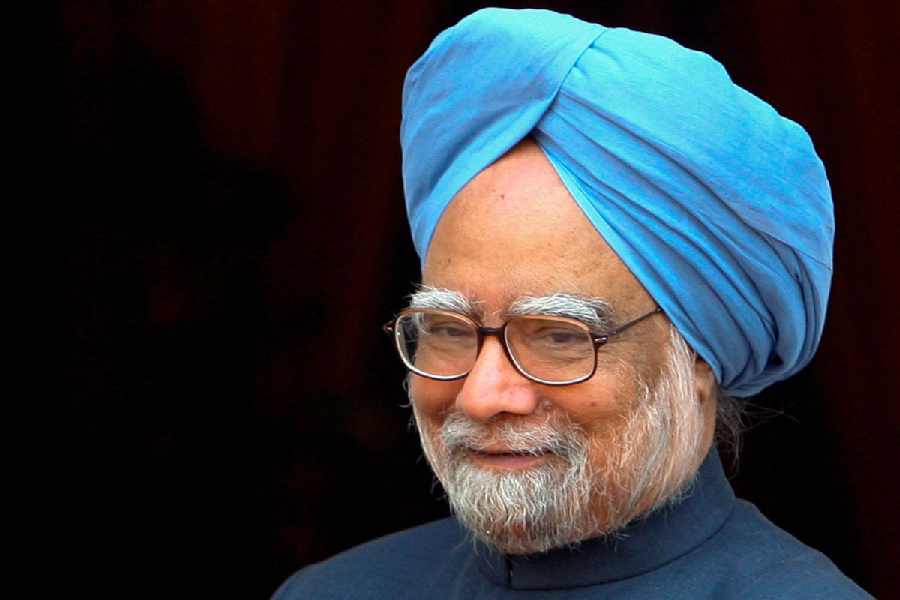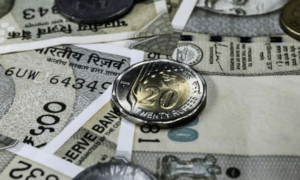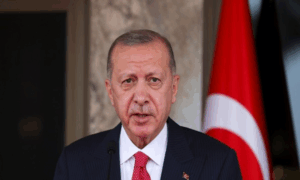
File Image
“I do not believe that I have been a weak Prime Minister. I honestly believe that history will be kinder to me than the contemporary media or for that matter the Opposition in Parliament… Given the political compulsions, I have done the best I could do.” said the former Prime Minister Dr Manmohan Singh who breath his last on Thursday at the age of 92. India lost one of it’s most admired economists who brought her out of the most darkest period to one of the leading economies in the world today. While his tenure as Prime Minister was marked by political difficulties and controversies, Singh’s contributions to India’s economic liberalisation and his steady governance during times of crisis are undeniable.
Singh’s rise from humble beginnings to the pinnacle of power was the story of a self-made man; that such a rise could take place in India was to the credit of India’s incredible democracy, however faltering it may be. Born in Gah, a backward village in west Punjab (now in Pakistan), which did not have any school, health facilities or electricity, he used to walk miles to go to an Urdu-medium school. He completed his Bachelor’s and Master’s degree from Punjab University and went on to earn DPhil from the University of Cambridge and Oxford respectively.
Before beginning his political career, Singh worked with the United Nations in 1966. His bureaucratic career saw him holding key posts such as an advisor to the Foreign Trade Ministry, Chief Economic Advisor to the Government of India, Governor of Reserve Bank of India and Head of Planning Commission. His political career began in 1991 when India was going through a serious economic crisis. The then Prime Minister of India, P.V. Narasimha Rao, commissioned him as the Finance Minister. He was also the Leader of Opposition in the Rajya Sabha from 1998 to 2004 when Atal Bihari Vajpayee was the Prime Minister.
Singh’s journey to the Prime Minister’s office began as the Finance Minister in 1991, when he implemented landmark economic reforms that played a key role in India’s integration into the global economy. His tenure as Finance Minister under Rao is regarded as the foundation of India’s economic liberalisation. Singh’s bold steps, such as reducing import tariffs and introducing economic reforms, are considered pivotal in transforming India into a global economic player.
India mourns the loss of one of its most distinguished leaders, Dr. Manmohan Singh Ji. Rising from humble origins, he rose to become a respected economist. He served in various government positions as well, including as Finance Minister, leaving a strong imprint on our economic… pic.twitter.com/clW00Yv6oP
— Narendra Modi (@narendramodi) December 26, 2024
Manmohan Singh became Prime Minister of the United Progressive Alliance government in 2004. He signed the landmark civil nuclear deal with the United States in July 2005. Singh returned for a second term which was marked by
challenges such as corruption scandals and rising inflation. His leadership during this period was often called into question, especially by political opponents. Despite these challenges, Singh remained steadfast in his belief that his government’s actions were aimed at India’s long-term growth, even if they were politically difficult in the short term.
Former Prime Minister Dr. Manmohan Singh is no more.
He had served as the Governor of RBI and as Finance Minister of India. Presented the milestone budget of 1991 which liberalised the Indian economy.
Respected by all, he was soft-spoken and gentle.
Condolences to his family… pic.twitter.com/akxQOYrMPl— Nirmala Sitharaman (@nsitharaman) December 26, 2024
Throughout his political career, Singh often made statements that sparked debate and shaped his public image. One of his most notable comments came in 2014, when he sharply criticised Narendra Modi, who was then the BJP’s prime ministerial candidate. Addressing the Gujarat riots of 2002, Singh remarked, “If you measure the strength of Prime Minister by presiding over mass massacre of innocent citizens on streets of Ahmedabad, then I do not believe in it.” This statement was a direct response to the BJP’s portrayal of Modi as a strong leader, contrasting it with Singh’s image as a calm, consensus-driven politician.
Years later, Singh regretted the harshness of his earlier statement. “I did say Modi will be a disaster as the PM. Now I recognise I used a harsh word I should not have used,” he admitted in November 2018. This reflection highlighted his capacity for introspection, a characteristic that was also evident in his later years as he distanced himself from some of his earlier comments.
Deeply grieved at the passing away of former Prime Minister Dr. Manmohan Singh today.
While regarded as the architect of Indian economic reforms, he was equally responsible for the strategic corrections to our foreign policy.
Was immensely privileged to work closely with him.…
— Dr. S. Jaishankar (@DrSJaishankar) December 26, 2024
Singh’s legacy is one of quiet resilience and complex leadership. His calm and measured responses, even in the face of harsh criticism, highlighted his belief in the long-term impact of his decisions. As India moves forward, Singh’s place in history remains secure as a pivotal figure in shaping the country’s modern economic landscape as he rightly said, “I have done as well as I could do according to the circumstances. It is for history to judge what I have done or what I have not done.” Certainly, history will be kinder to this gentle soul.
[the_ad id=”55722″]


















